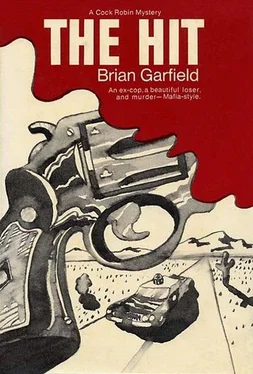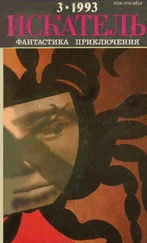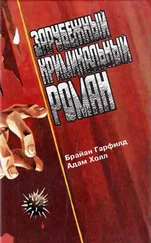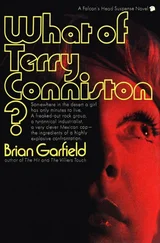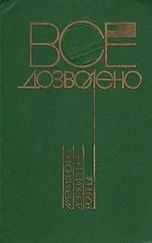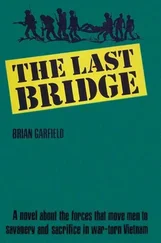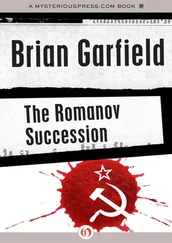“No. No, thanks.” I got up, feeling like an intruder. “I’m sorry I bothered you. I had a feeling before you walked in the room that I’d been given a bum steer.”
“It happens,” he said, “all the time. I’m sorry I couldn’t help more. You’re sure you won’t stay and put on the feedbag with me?”
“No, I’ve got to—”
“Nobody around here eats with me any more,” he said, overriding me with the parade-ground strength of his big voice. “The hired help think it ain’t proper and I’ve got no family left. My wife died two years ago and my only son was an Air Force colonel, shot down in Vietnam. How about a bite of lunch? You look like a man who can make good conversation.”
The poor, sick, lonely old fossil. I shook my head and declared, “I’ll take a rain check. If we’re both still alive next week I’ll take you up on it.”
“By God, I’ll hold you to that.” He smiled for the first time.
Heat clung to the ground like melted tar. It was past one o’clock; I felt the crowding press of time as I drove out the front gate and turned left on the highway, pushing the Jeep up to speed. One or two thoughts had begun to jell in my mind and I knew where I wanted to look next.
Ten miles west of Baragray’s gate the plateau ended abruptly at the Mogul Rim. The desert lay beyond, below the three-thousand-foot scarp. The highway made several sharp turns and went down the face of the rim with long slopes and hairpin switchbacks, hugging the cliffs. I’d started down the steep narrow pitch, with the sheer drop at my left, and a green car ahead of me pulled out onto the road, going in my direction. I braked and mouthed an oath. The car ahead built up a little speed but after that I knew I was stuck. He wasn’t much of a mountain driver. I had to keep it down to twenty-five to accommodate him, and I couldn’t see any place to pass. I chafed. This was no time to get stuck behind a schoolteacher. I could see vaguely past the sun glare on his back window the faint shape of his head and shoulders hunched nervously over the wheel.
The road bent around a promontory and kept going down; we crawled around two tight hairpins and then I spotted a straight stretch approaching, where I might be able to get by. Impatient, I moved up close behind him, downshifted, hit the horn button and pulled into the left lane, gunning it.
It was downhill; the Jeep shot forward. But as I pulled parallel, the green car accelerated.
I turned my head to yell at him — and saw his wide, florid face.
It was Ed Behrenman — the tail I’d shaken off last night. The crimson face broke into a taut grin. I saw a gun in his right hand, coming out across the sill, a big Army .45 automatic. He tugged the wheel over, bringing his car across the white stripe, crowding me onto the edge.
A few times in my life I have done things for which I would like to have taken credit, as if I had reasoned them out beforehand, prepared for them and accomplished them with cool deliberation, unruffled and supreme. The truth was, in each case I acted with unthinking reflex, and it happened to work. Call it luck; call it fate. Call it a natural endowment of good reflexes.
Behrenman swung his car against me. We were both streaking toward a sharp right-hand bend, with the 2,500-foot drop at my left. I hit the brakes hard and it was those unthinking reflexes that made me crab the wheel — not away from him, but toward him.
He was expecting it but he was a shade slow reacting. My bumper banged along the side of his car with a garbage can racket. He slammed his brakes and slewed across the road at an angle, trying to shove me off the cliff with the superior weight of his big car. He might have done it, if the Jeep had had a longer wheelbase. I heard the crack and roar of his pistol. A glazed star appeared in the windshield before me. I was crabbing the wheels over hard, fighting the weight of his car, and as he slid forward the protruding edge of the Jeep bumper swung into the scalloped fender opening over his left rear wheel. There was the sudden sharp stink of burning rubber as the bumper shredded his back tire; then the hooked edge of the bumper caught the inside of his fender. I held the brakes down hard. The green car skidded, swiveling on the pivot. He spun left. His front wheels went over the edge — I saw terror on his suddenly white face. The .45 boomed and roared. In that broken instant of time my reflexes sent messages to feet and arms: I gunned the Jeep forward, got free of his fender, spun around with my rear wheels skidding to the right.
The gun was still thundering. A ricochet screamed off the Jeep’s hood. Freed of bumper-hook restraint, the green car pitched forward over the rim and turned a slow somersault.
The Jeep shuddered and stopped, skewed across the road at an acute angle. My front wheels were inches from the edge. I jammed the shift into reverse, backed onto the pavement and set the hand-brake. I got out on wildly trembling legs and made my way to the edge. I could still hear the bang and crash of the tumbling car.
It was still falling. The cliff was not quite perpendicular; the car went down end-over-end, each somersault slow and ponderous. It was hardly recognizable as an automobile — squashed, foreshortened, both ends pleated like an accordion’s bellows.
Four hundred feet below, it pitched out over a rock outcrop, hung suspended in the air, and crashed down like a pancake on a reverse-turn of the highway. From where I stood it didn’t seem to bounce at all. It hit the pavement flat, on all four wheels, with a sound I never forgot — deafening, but more crunch than crash. Like the amplified crump of a distant field mortar.
Pieces of sharded glass winked in the sunlight down the length of the car’s vertical path. One door lay intact, hardly dented, forty feet below me. One wheel, with part of an axle, teetered on the lip of a rock a few yards below that.
I retreated from the edge and braced both hands on a flat fender of the Jeep, taking deep breaths. After a while I opened my eyes and climbed numbly into the seat, got the Jeep moving and crawled downhill at a feeble pace. My arms shook violently. My mouth was sticky with dry fright.
The unrecognizable remains of the green car were splashed across the width of the road, more or less in one piece fused together by impact. The thing was upright but the final blow had driven the remaining wheels and underparts up into the body; it was squashed almost flat, not more than three feet high at any point.
It was a useless gesture, but I tried to pry into the wreckage to find him. All I could find was a hand, severed, the fingers locked around a mangled pistol. I went to the side of the road and vomited.
The wreck blocked the road. I would have to move it. I unwound a length of cable from the winch-drum on the front bumper of the Jeep, found a corner of the wreckage on which to set the hook, went back to the Jeep, set the brakes and worked winch levers.
It was no good. The wreck had smashed completely into the pavement. The only way to move it would be to get above it with a wrecker and lift it out.
I caught myself uttering a blank monotone of curses. I clamped my mouth shut, rewound the winch cable, and turned around to drive back up to the top. There was another highway that would take me around, past Baragray’s ranch and down another cliff road thirty miles to the north. It would cost me three hours.
I phoned the Highway Patrol from a lonely filling station to report the wreck, giving them a fake name, and went on. Driving through the mountains, threading menacing dark stands of pine, I put my mind on Ed Behrenman, who had not tailed me up to Baragray’s from the city but who had known where to ambush me, and by the time I started down the steep canyon highway I knew where to look for Aiello’s killer and where to start looking for the $3 million.
Читать дальше
